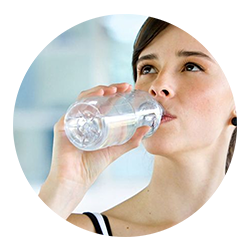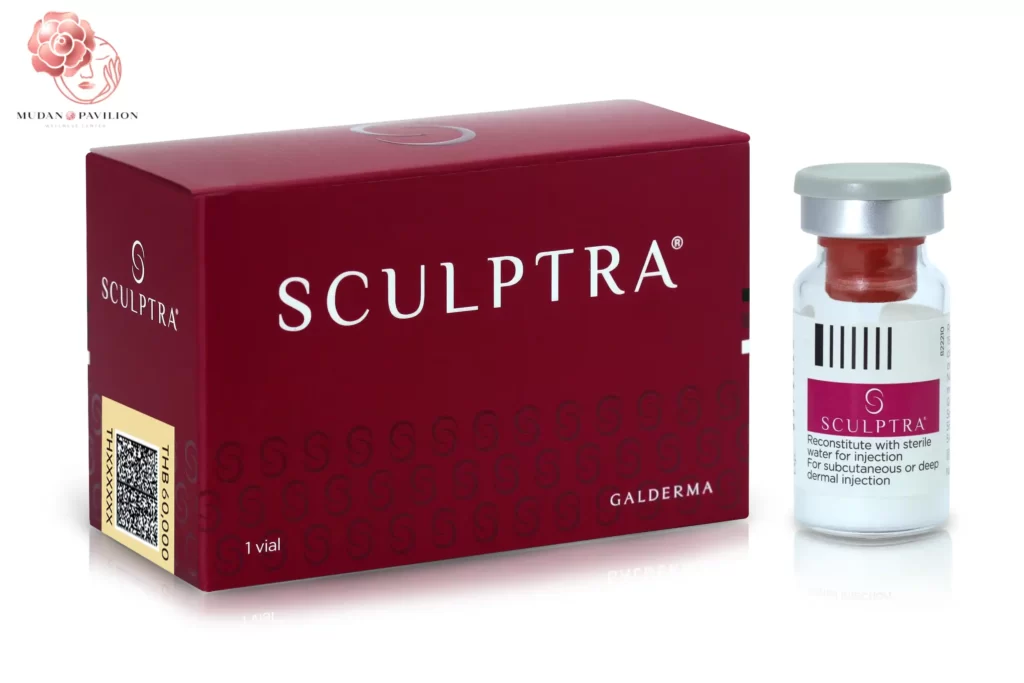Collagen boostingFacial rejuvenation doesn't always require a doctor's help. Many treatments can be easily done at home. Simply adjust your behavior or choose products that nourish your skin from within regularly, and your skin will appear fuller and more radiant in the long run. However, if you want faster results, you can also opt for procedures like fillers, skin boosters, or other collagen-stimulating technologies.
How to increase collagen
- Collagen is
- What does collagen help with? Why do you need to add it?
- Skin signs that indicate collagen deficiency
- How to increase collagen in your face for beautiful, healthy skin
- Things to avoid to prevent collagen loss
Collagen is
Collagen is a type of protein that is an important component of the skin. It has a high proportion of 80 % that will be in the form of long chains, acting like glue and being the structure of various tissues within the body, such as skin, muscles, bones, tendons, joints, and nails. Most collagen is found in the dermis layer. Within our bodies, there are up to 16 types of collagen, and the types that are commonly found are 5 types as follows:
- Collagen Type I It is the most abundant type of collagen found in the body. It is found in skin, hair, bones, blood vessel walls, and tissues. It helps to increase skin elasticity, making the skin smooth and helping with wound healing. However, if the body has a low amount of Collagen Type I, it can cause skin problems such as wrinkles and sagging skin.
- Collagen Type II It is a collagen that is more flexible than Collagen Type I. It is found in bones, cartilage, and joints, where it helps build cartilage. However, if the body has a low amount of Collagen Type I, it may cause joint pain and arthritis.
- Collagen Type III It is a collagen found in the skin, blood vessels, and muscles, which helps to strengthen the skin.
- Collagen Type IV It is a unique collagen found in the tissue layer supporting the skin of various organs. It helps with the functioning of the nervous system and blood vessels.
- Collagen Type V It is a collagen found in skin, hair, bones, blood vessel walls and tissues, or in the tissues of infants during pregnancy. It helps to organize skin cells and helps in the growth of fibers in the skin layer.
What does collagen help with? Why do you need to add it?

As you know, collagen is a type of protein that is an important part of the skin. Collagen acts like glue and is the structure of the tissue. As people age, collagen production decreases, causing the skin to lose its strength, causing wrinkles, rough skin, and leading to bone and joint diseases. Therefore, collagen supplements are necessary.
Collagen helps nourish the skin, making it firm, smooth, and not rough. It makes the skin look moisturized and helps increase skin elasticity. It also helps reduce the chances of arthritis and joint pain, helps with recovery, helps repair tissue that may be damaged from injuries, wounds, etc., helps increase muscle mass and reduces muscle loss with age, helps strengthen hair and nails, reduces the chances of breakage and allows them to grow well. Finally, it helps improve blood circulation and helps reduce the visibility of cellulite on the skin.
Skin signs that indicate collagen deficiency
Signs of collagen deficiency can manifest in many ways. This is because collagen is an important protein in the skin, keeping it firm, elastic, and youthful. Therefore, when the body loses collagen or produces less, the skin will begin to wrinkle and crease on the face. The skin will become dry, lacking moisture, thin, and rough. The skin will begin to lose its elasticity, making the skin feel less firm. In addition, the skin tone will be uneven, dark spots will appear, pores will enlarge, acne scars, and dents will occur. After an injury, recovery will be slower than normal, which may even cause scars.

How to increase collagen in your face for beautiful, healthy skin
As we age, collagen production under the skin decreases, resulting in wrinkles, sagging skin, a dull appearance, premature aging, and possibly bone or joint disease. However, we can help increase and maintain collagen under the skin in the following ways:
1. Eating healthy foods
In particular, eating protein such as chicken, fish, pork bones, eggs, nuts, and grains will help increase collagen. In addition, consuming vitamin C, vitamin A, and vitamin E will help slow down the breakdown of collagen and stimulate collagen production, as well as help with cell turnover.

2. Drinking enough water
Water is an important component of the body. Drinking enough water helps keep the skin hydrated. It is also important for the functioning of skin cells and the production of strong collagen.
3. Choosing the right product
Choose products that contain retinol, vitamin C, peptides, or Niacinamide (vitamin B3), which are substances that help stimulate collagen production and help improve skin condition.
4. Applying sunscreen
Sunlight is a factor that destroys collagen under the skin. Therefore, before going out in the sun, you should apply sunscreen with SPF 30 + + every day, even on days when there is no strong sunlight, or you should avoid direct exposure to the sun.

5. Get enough rest.
When we sleep, our bodies release growth hormones to help restore and repair skin cells and stimulate the production of collagen in tissues for greater strength. You should go to bed before 10 p.m. and get 7-8 hours of sleep to help increase collagen production on your face.
6. Exercise regularly.
Exercise, such as cardio, helps strengthen the body and stimulates the circulatory system and heart to function well, delivering blood and nutrients to the skin. This allows skin cells to produce collagen, resulting in skin rejuvenation, healthy skin, and a radiant glow.
7. Sculptra injections, Skin Booster injections
It is an injection of concentrated skin nourishing substances directly into the middle layer of the skin (Dermis). It is like adding nutrients to the skin, helping to restore the skin's condition. In addition, Skin Booster also helps stimulate the production of collagen and elastin in the skin, making the skin more elastic and looking younger, such as: Sculptra, Juvelook, etc.

8. RF (Radio Frequency)
It's a treatment that uses radio waves to induce heat into the skin's surface. This stimulates the production of new collagen and elastin, resulting in a firmer, smoother complexion. It also helps reduce wrinkles, dark spots, and brightens the complexion.
9. Ultherapy
It is a technology that uses high-intensity focused ultrasound waves to stimulate collagen production under the skin, resulting in firmer, younger-looking skin, smoother, fuller, more radiant skin, and a more radiant appearance.
10. Thermage
This treatment uses radio frequency waves to shoot down into the dermis and fat layers of the skin to stimulate collagen production under the skin and to lift and tighten. This results in firmer skin, reduced wrinkles, smoother skin, and reduced facial fat.

11. Facial treatment
This is another way to restore and repair your face. It can be done in many ways, such as cleansing your face, exfoliating, removing dead skin cells, applying a face mask, or massaging your face. This helps stimulate the skin, promotes blood circulation, and stimulates the creation of new collagen. This results in brighter, younger-looking skin, smoother, and less dry skin.
12. Laser skin resurfacing
This treatment uses high-energy laser light directed at the skin. The laser helps exfoliate the outer layer of skin cells and stimulates the production of new collagen and elastin, resulting in smoother skin, reduced wrinkles, tightened pores, and effectively addressing various skin problems.
Things to avoid to prevent collagen loss
To prevent the skin from losing collagen, which will cause the facial skin to wrinkle, become rough, and make the face look older than its age, we should avoid these things.
- cigarette As you know, cigarettes contain nicotine, which damages collagen and elastin beneath the skin, causing wrinkles and slow wound healing. Nicotine also causes blood vessels in the skin to constrict, preventing the delivery of oxygen and nutrients.
- Alcoholic beverages Drinking large amounts of alcohol causes the body to lose water, resulting in dull, lackluster skin. It also affects the circulatory and digestive systems.
- Eating foods that are high in sugar and refined carbohydrates This is because sugars bind to proteins to create advanced glycation end products (AGEs), which break down neighboring proteins and cause collagen to dry out, become brittle, and weaken.
- sunlight As you know, UV rays in sunlight are the main cause of collagen and elastin destruction under the skin. They also affect collagen production and cause collagen to break down faster.
- pollution For example, dust or car fumes, when accumulated over a long period of time, can destroy the collagen beneath the skin.
- Stress: When we are stressed, our bodies produce cortisol, a hormone that breaks down collagen beneath the skin.







